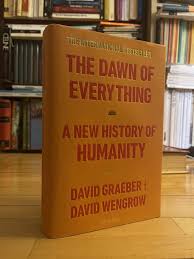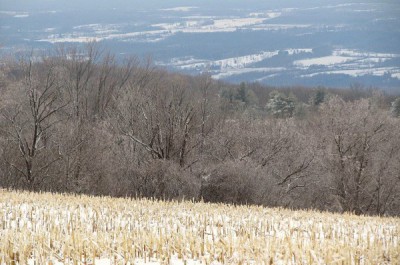
But the cosmic vision can’t replace the narrow vision or the mid-range vision. We need to move freely between all three vantage points in order to scan the world as honestly as possible. So it’s a nested hierarchy of perception, where the cosmic puts the narrower communal and personal vantage points in their proper place. Without this fluidity of perception, our limited stories lose that tether to reality and become deceitful to the point of self-destruction.
Refusing to see the world honestly is the quickest way to be killed.
For instance, we could call this a dangerous world or we could call this an evil world. Both would be fictions. But the first one is more consistent with life in a wilderness, and we’re always living at the edge of a wilderness, because life always exceeds the idea, because they are two different substances, and never the twain shall meet
As in any earthly wilderness, it’s best to approach the unknown as a danger, but not as an evil. If we were to live by the fiction that the woods are evil, then the animals we encounter would increasingly live up to that billing. This is how schizophrenia becomes so convincing. The world responds to our stories, whether they’re honest or deceptive stories. Even positive thinking is deceptive. What it produces is a false front, a positive deception. Even if we’re not technically schizophrenic, the same principle exists. An “evil” interpretation would corner the beings we encounter into living up to that billing – they’d sense our fear aggression and respond in kind, seeing us as a threat — or they’d simply refrain from helping the flailing and drowning world (Chomsky’s Martians, for instance) and let it drown.
But if we approach the wilderness as dangerous, but not evil, then we’ll be able to notice other non-aggressive qualities in our fellow animals, and learn to avoid provoking them. We might learn to become friends with some of them, as we did in befriending wolves and wild cats.
The world responds to our stories. The deceptive stories can be too rose-colored as well. If we approached the wilderness as a paradise of love, we’d blind ourselves to the dangerous potentials that are also there and not live long either.
The problem with the bullshit of “positive thinking” is that the naively rose-tinted glass-wearers end up eaten.
But – and this we don’t acknowledge enough — the same is true for the cynics, for the ash-tinted glass-wearers (who think positively still, but only in dark directions). We give the cynics far too much credit for a “worldly intelligence” they Do Not Possess. They also end up provoking a world that eats them. It’s the naïve Literalism, the ignorant certainties, the stupid belief in something called “non-fiction”, which is the deeper problem. The problem is a lost perceptual fluidity.
Somehow the breath-taking significance of this is lost on most of us most of the time. We don’t see the implications of what we’ve discovered here. This discovery of a prismatic capacity to see everything as honest fictions erases the need for conflict. And this relationship to fiction shows us how it’s possible to move through the world as blindly as Helen Keller, knowing nothing in a positive sense, tapping the canes of our metaphors and stories to obtain negative information (tap, there’s an obstruction, tap, there’s a limit to our metaphor, tap, change direction), and from that negative flow of information, we re-design our theories, stories, myths and metaphors, with no intention of finding conclusion, except perhaps in limited fields of inquiry, and even these may alter radically as more dots of data emerge, and this underlying uncertainty allows us to “keep going” deeper and deeper into this weird, miraculous and unfathomable world.
